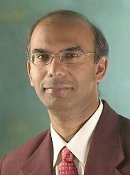A two-day technical course on
Dynamic Behavior of Ceramics and Transparent Materials
When: March 7-8, 2017
Instructor: Ghatu Subhash, PhD, Newton C. Ebaugh Professor, Mechanical and Aerospace Engineering, University of Florida
Location: Johns Hopkins University, Homewood Campus, Baltimore, MD
About the course:
The course presents a range of fundamental topics in dynamic response of brittle materials (ceramics and transparent materials) with emphasis on the relationship between material selection, properties, mechanical behavior and performance in dynamic applications. The two-day lecture series is designed to familiarize graduate students, engineers, and researchers with interest in dynamic behavior of advanced ceramics to the fundamental concepts and then to the state-of-the-art experimental, theoretical and computational studies under a range of complex dynamic loading scenarios. The course contents include:
- Brief history of ceramics, applications, microstructures, and properties
- Introduction to the light-weight ceramic system for impact applications, relevance of material properties, importance of material selection, impact mechanisms for confined ceramics, various phases of evolved damage during impact, and the effect of confinement on ceramic behavior
- Experimental methods and Impact testing methods (phenomenological, design oriented, and material characterization approaches)
- A review of the fundamentals of wave propagation, dynamic fracture, and high strain rate and shock experimental methods
- Damage development and damage characterization methods along with spectrographic methods
- Modeling of impact response of ceramics including mechanistic-based and statistical-based approaches
- The effects of confinement on brittle fracture, fragmentation, and comminution.
- Impact response of transparent materials (sapphire, AlON, Spinel, strengthened glasses and others), damage propagation characteristics, stress wave interactions, and fragmentation processes
- Future demands, requirements, and technological pathways for development of light-weight ceramic
About the instructor:

Ghatu Subhash is Newton C. Ebaugh Professor of Mechanical and Aerospace Engineering at University of Florida (UF), Gainesville FL. He has been conducting research on dynamic response of ceramics for more than 25 years. He obtained his MS and PhD degrees from University of California San Diego and conducted post-doctoral research at California Institute of Technology, Pasadena, CA. Prof. Subhash has co-authored 165 peer reviewed journal papers and 70 conference proceedings in various fields related to processing, microstructural characterization and dynamic multiaxial behavior of materials including ceramics, metals, composites, foams, metallic glasses, gels and brain tissue. He has also secured several patents which have been licensed to industry. Prof. Subhash has received numerous awards for excellence in teaching, research and professional service, including the Orr ‘Best Paper’ Award, ASME-Journal of Engineering Materials and Technology (Nov 2016), National Academies panel member for the Army Research Laboratories, National Research Council (2015-2017), UF ‘Technology Innovator Award’ (2014 and 2016), UF Research Foundation Professor (2013-2016), UF College of Engineering (COE) Doctoral Dissertation Mentoring Award’ (2015-16) and Teacher/Scholar of the year (2013), ‘2011 Researcher of the Year’ MAE Department at UF, Second Place-Best paper Awards-American Ceramic Society (2008), Michigan Tech Distinguished Research Award (2005), ASME Fellow (2004), ASME Student Section Advisor Award (2003), Society of Automotive Engineer’s Ralph R. Teetor Educational Award (2000), and American Society of Engineering Education Outstanding New Mechanics Educator (1996). He is an Associate Editor of Mechanics of Materials, Journal of the American Ceramic Society, Experimental Mechanics and ASME Journal of Engineering Materials and Technology.
Registration:
Continental breakfast, lunch, the informal social and course materials are included in the cost of registration.
Schedule:
All of the course events will take place in Malone Hall room G-33 / G35 unless otherwise indicated.Tuesday, March 7
Registration and Continental Breakfast 8:30 am – 9:00 am
Welcome by HEMI Director 9:00 am – 9:10 am
Short course 9:10 am – 12:00 am
Lunch 12:00 pm – 12:45 pm
Short course 12:45 pm – 4:00 pm
Informal social 4:00 pm – 5:00 pm (Malone 1st floor lobby)
Wednesday, March 8
Continental Breakfast 8:30 am – 9:00 am
Short course 9:00 am – 12:00 am
Lunch 12:00 pm – 12:45 pm
Short course 12:45 pm – 4:00 pm
Travel and Accommodations:
For those traveling by air, we recommend flying in to BWI Thurgood Marshall Airport in Baltimore.
Shuttle, taxi and rental car options are readily available at BWI for a reasonable price.
For those traveling by train, Baltimore’s Penn Station is a 10 minute drive from campus.
The Inn at the Colonnade is located within walking distance of Homewood Campus.
Cancellation Policy:
HEMI reserves the right to cancel a course up to 2 weeks before the scheduled presentation date. Please contact the HEMI office to confirm that the course is happening before making non-refundable travel arrangements.



